Workshops in western Ecuadorian communities affected by natural disasters and poor labor conditions
Our trainees travel to one another's communities for work exchange setting up water systems
Colleagues from Amisacho Restauracion and La Clinica Ambiental in Lago Agrio, Ecuador who hosted our workshop in September 2022 held two more workshop-installations in coastal and inland provinces of northwestern Ecuador.
Fukame and Nuevo Tabete communities
One workshop was held in Provincia de Esmereldas, in the community of Fukame, on the small coastal island of Muisne. In April 2016 an earthquake devastated communities in and around Muisne. The government wanted to evict the island’s population after the earthquake to develop the site for tourism. However, forty-six families displaced by the earthquake remained on the island and formed the Fukame community, to continue practicing their traditional way of life catching fish and crabs. The community is mostly ethnic Afro-Ecuadorian.
Lexie and Luis from Amisacho and La Clinica led the workshop, with facilitation assistance from two Fukame community members who had traveled to Lago Agrio in September for the initial workshop.
The workshop in Fukame was also joined by community members of Nuevo Tabete, about 100 km northeast of Muisne. Tabete community members were displaced in 2015 by a landslide that buried three families and killed 13 people. At their current site, Nuevo Tabete (New Tabete), they have not been granted land rights by the government and thus subsist with only the most basic infrastructure and services. They considered learning about decentralized and portable water treatment to be vital for their wellbeing.
A few photos from the workshop provided by Lexie of Amisacho…
Two members of the Furukawa labor camp community (described below) who participated in the September workshop in Lago Agrio also traveled to Fukame to gain additional experience with water system installation and help with the workshop in a work exchange arrangement.
Furukawa labor camp
Furukawa is a Japanese company that does industrial scale abaca (manila hemp) production. In Provincia Santo Domingo they have over 2,300 hectares (5,680 acres) in production. The work is done by over 1,200 poorly paid laborers mostly of Afro-Ecuadorian descent who live in rough conditions in labor camps controlled by the company. Most laborers do not have official Ecuadorian citizenship status, and have difficulty traveling out of the camps to access healthcare, education, and basic services. Multiple generations have grown up in the labor camps - for many people this is the only life they have known. Many cannot read or write, and access to clean water in the camps is a major issue. Living and working conditions are reported to be akin to slavery.
A water system workshop was conducted in one of the Furukawa labor camp settlements by Pablo Yepez of La Clinica. Members of the Fukame community who had also attended the September workshop in Lago Agrio worked with Pablo in the labor camp workshop as part of their work exchange between the Fukame and Furukawa communities.
Feedstock for making biochar adsorbent in this workshop and installation was scrap wood from rubber trees. Turning this material into biochar for providing clean water was particularly meaningful for many of the workshop participants due to the Ecuadorian rubber industry’s historical association with using the labor of slaves of African descent.
A few photos of the workshop provided by Pablo of La Clinica Ambiental…
Scrap rubber wood
Rubber wood scrap and industrial hemp (abaca) fibers used to make biochar.
It’s great to see our trainees going on to gain more experience setting up water systems, and conducting work exchanges in one another’s communities.
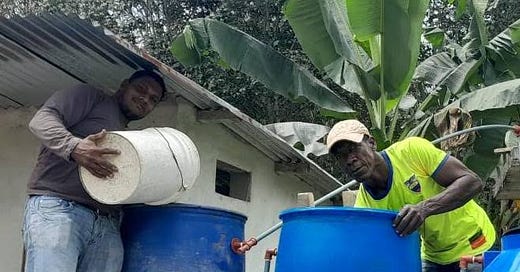


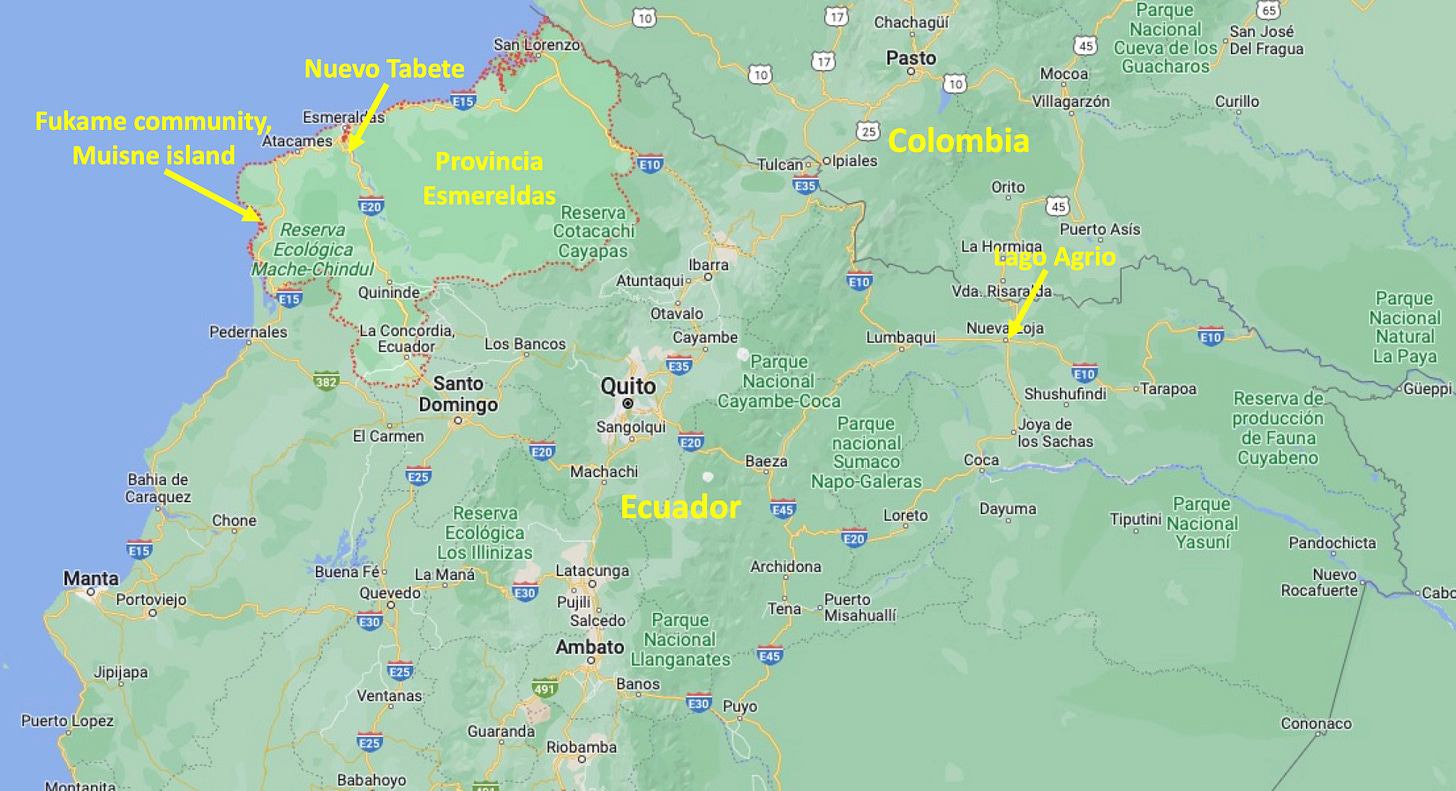
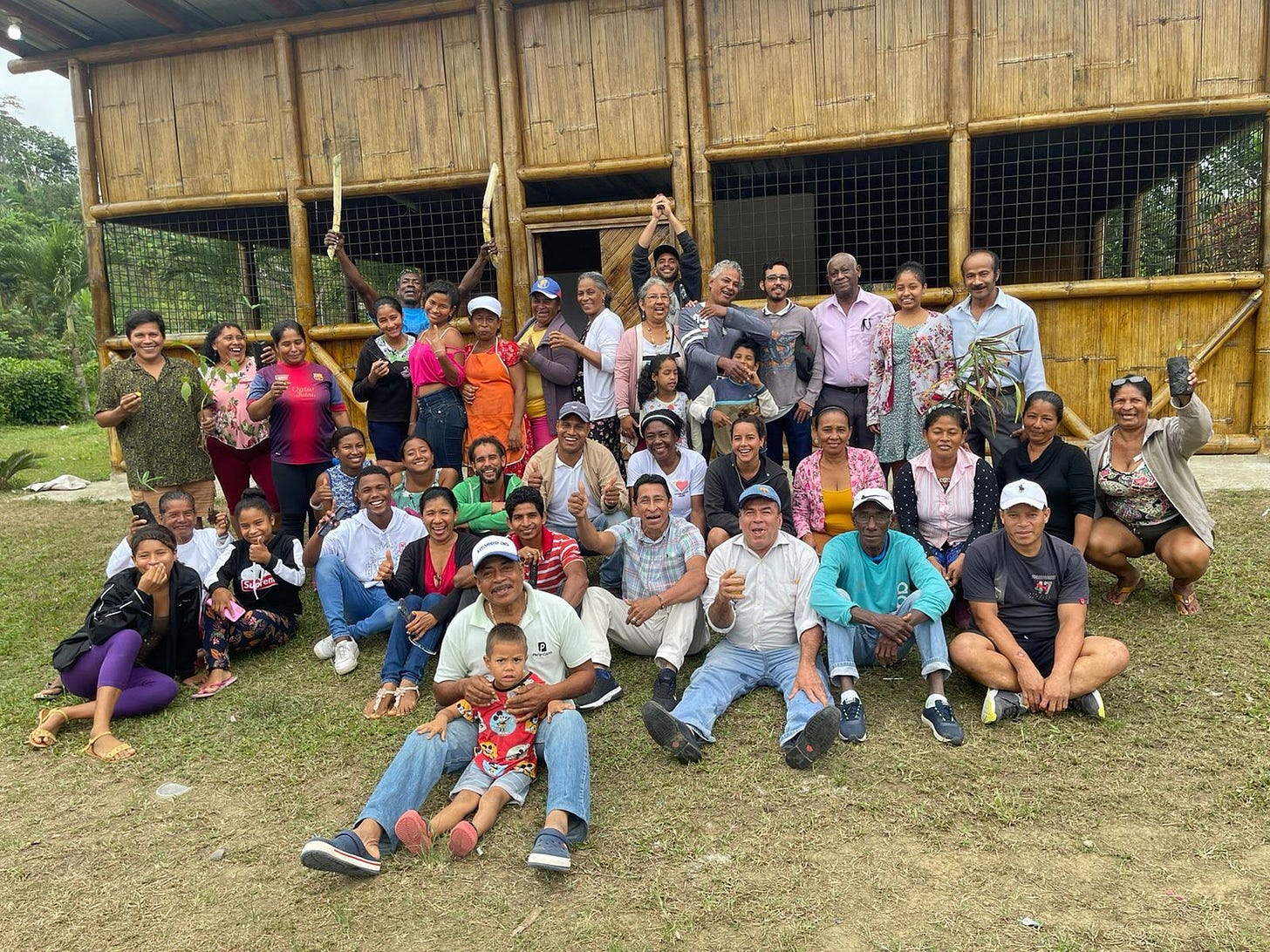
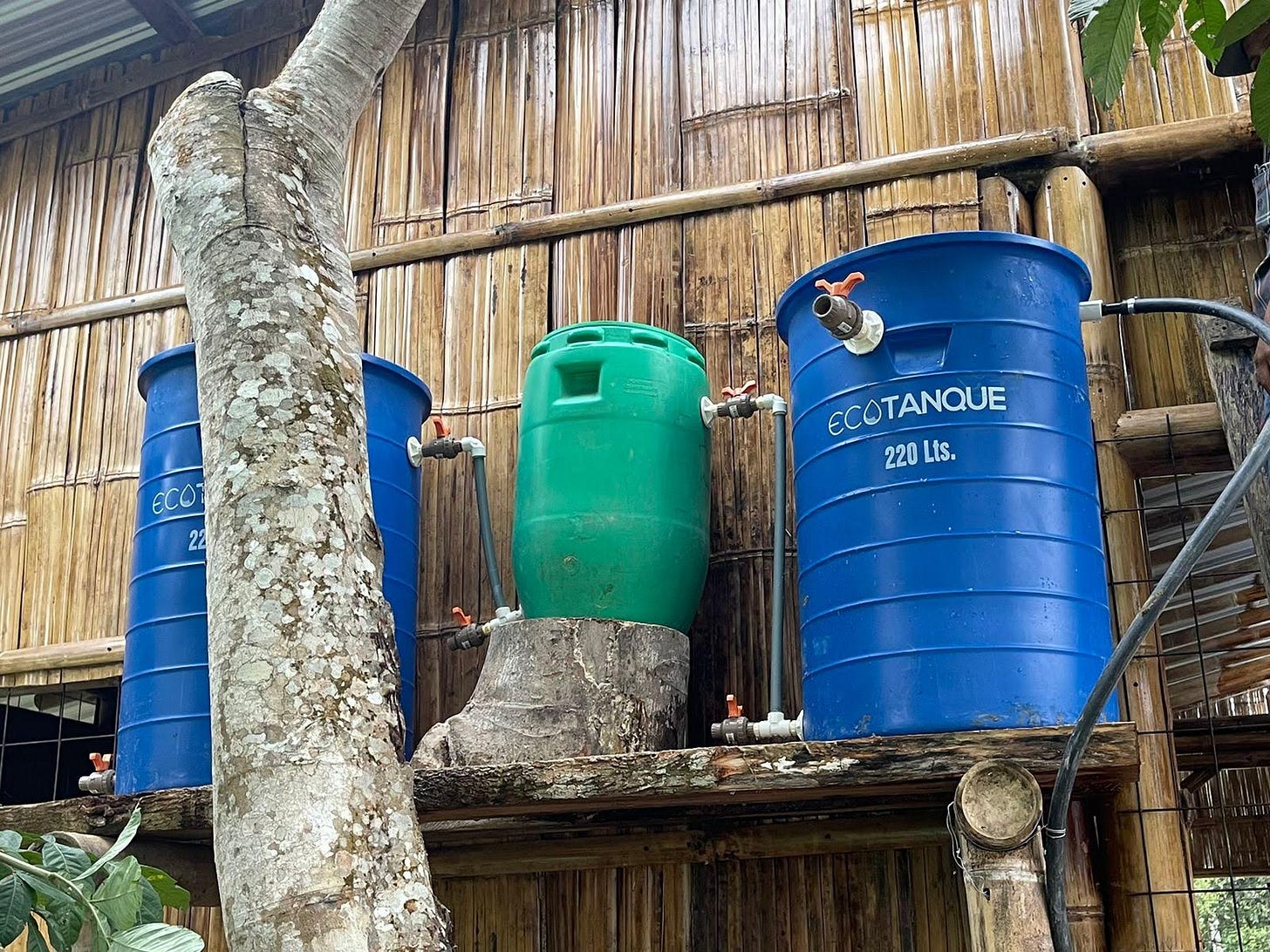
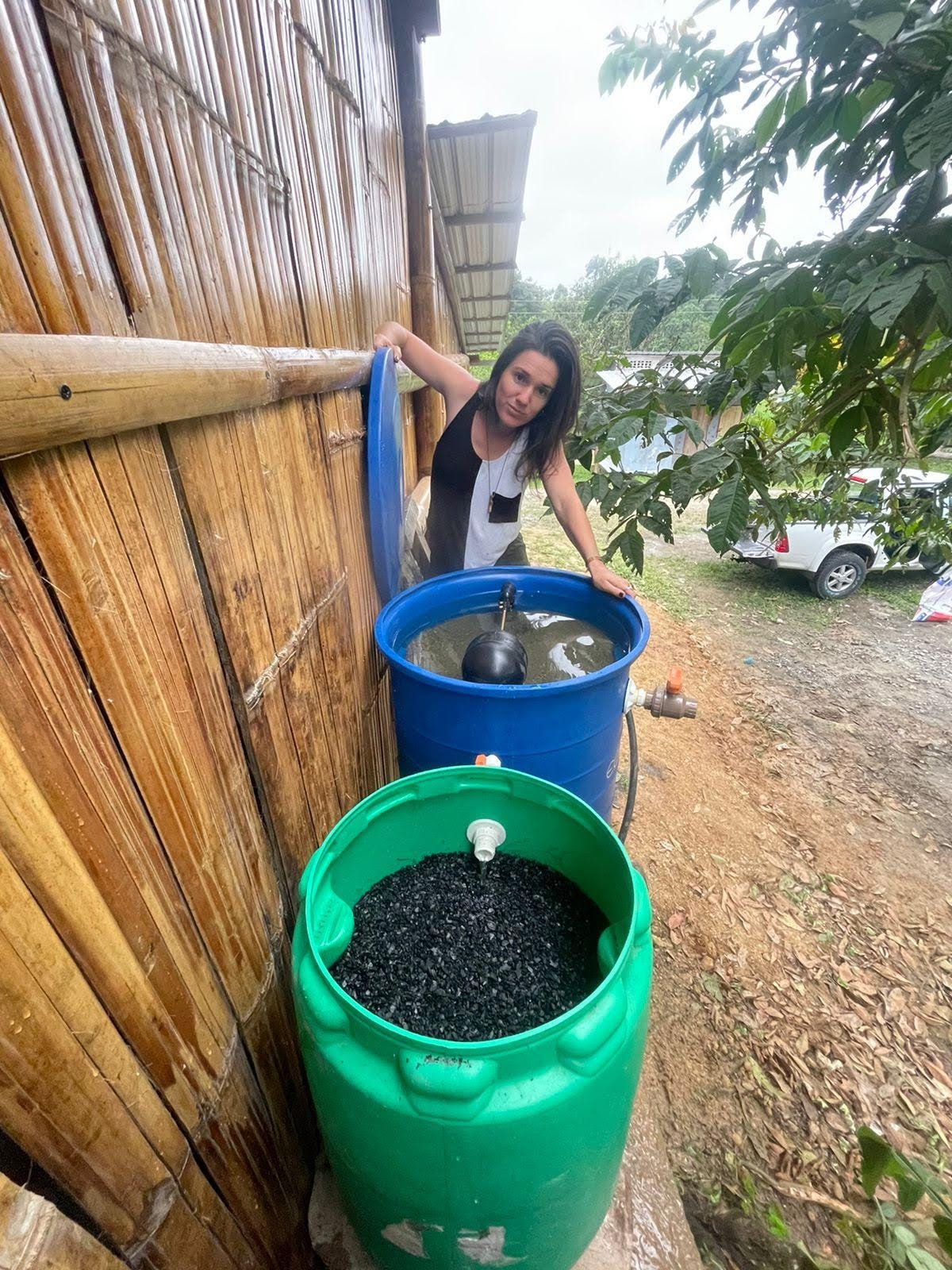
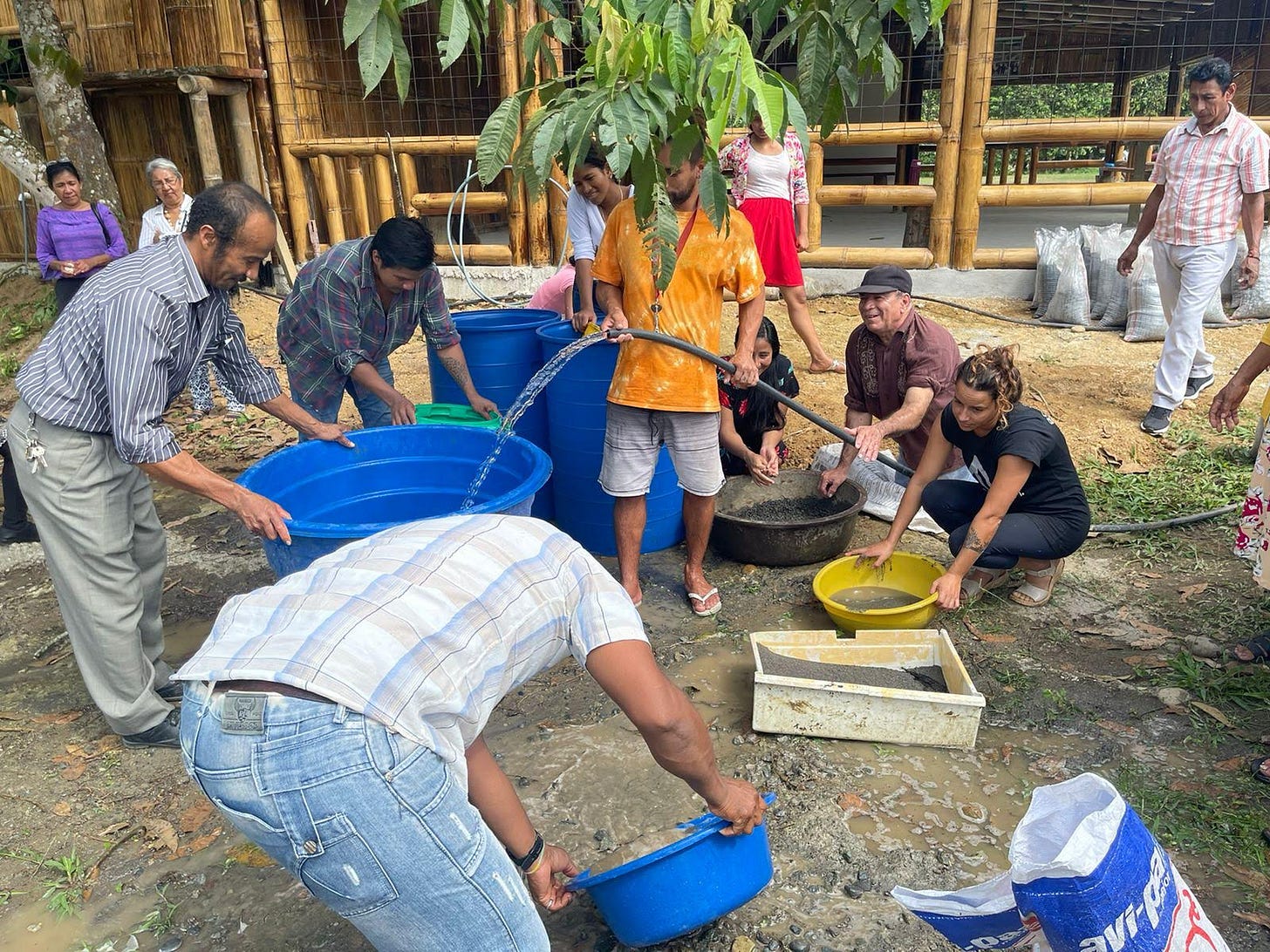
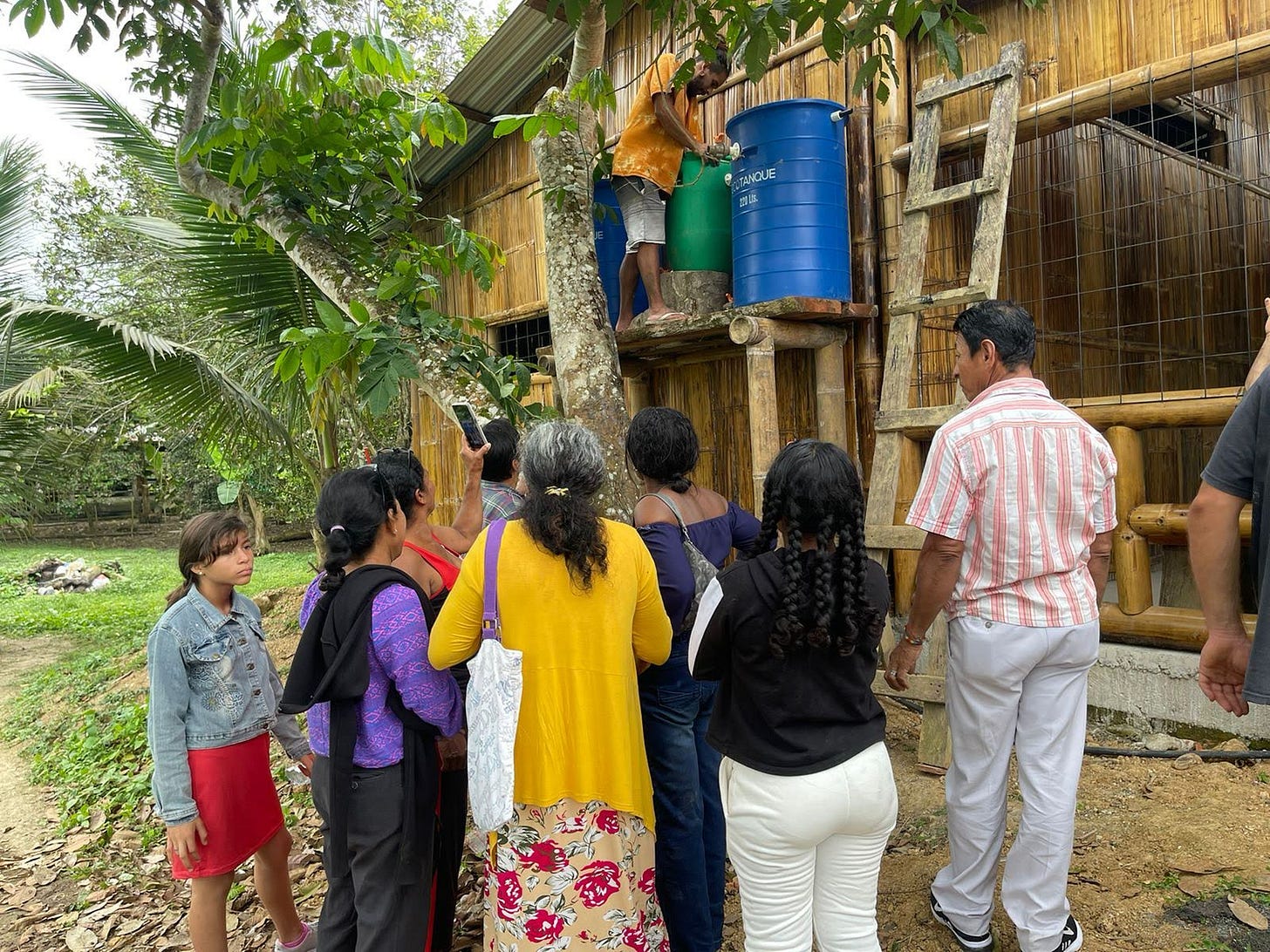

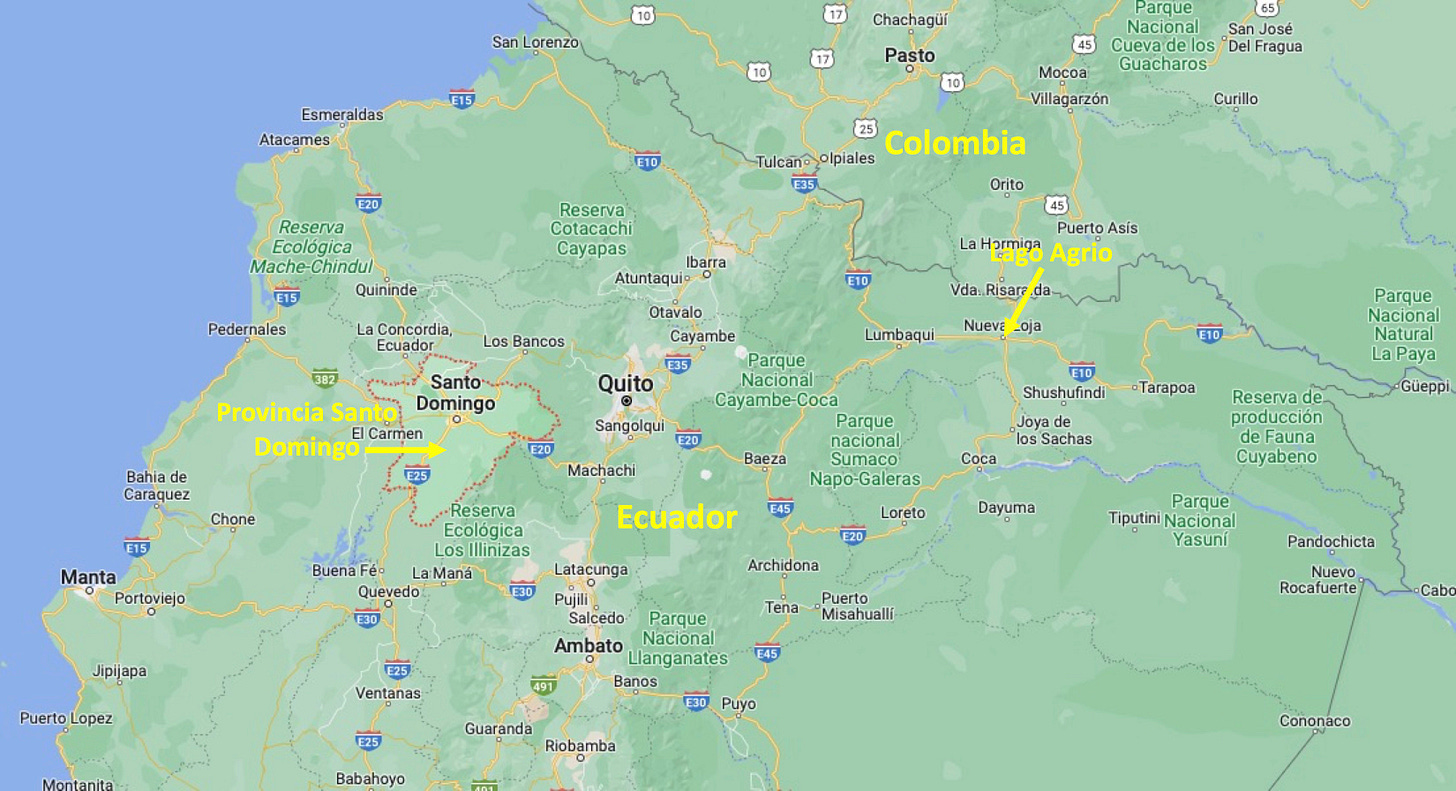
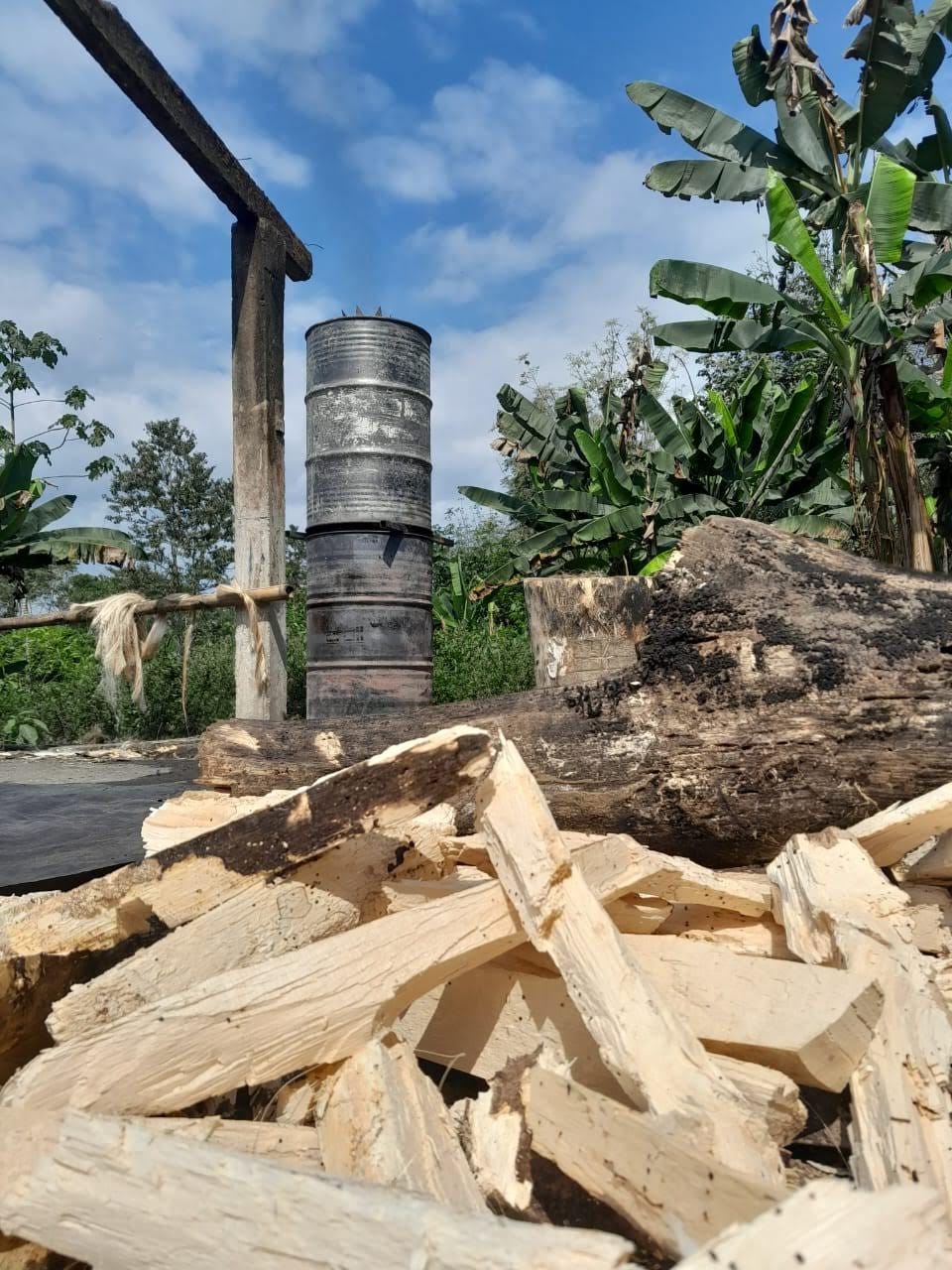
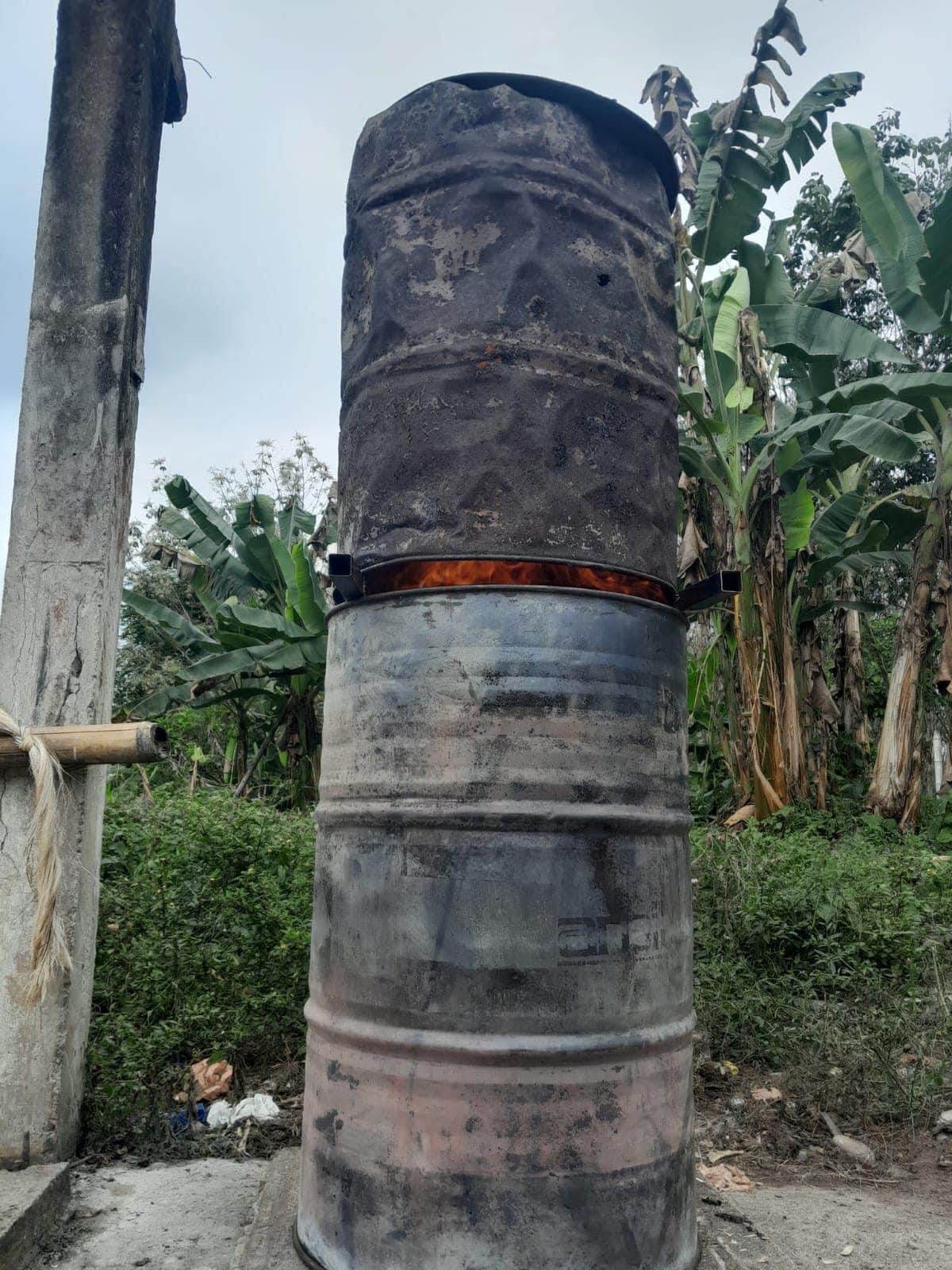
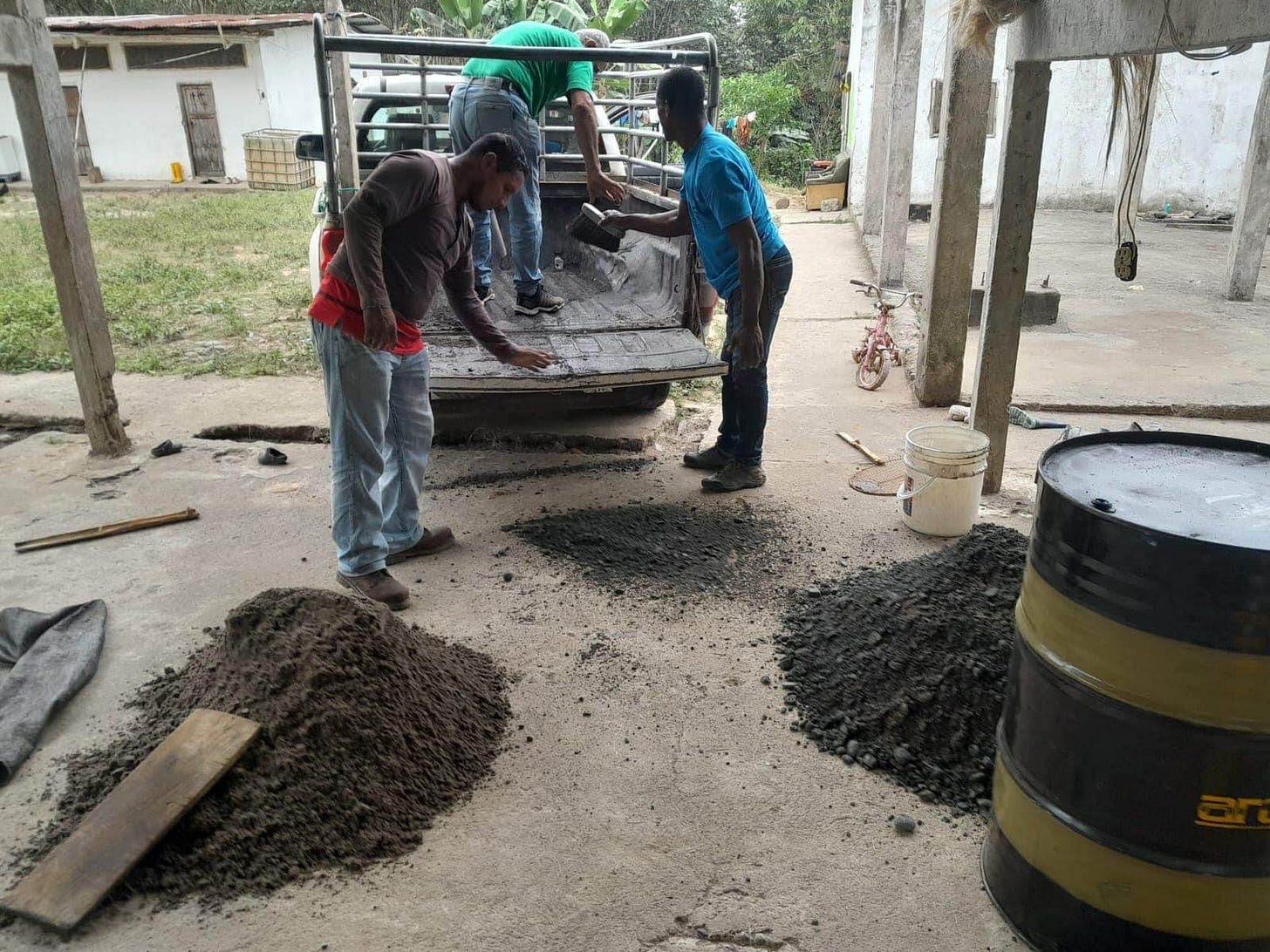
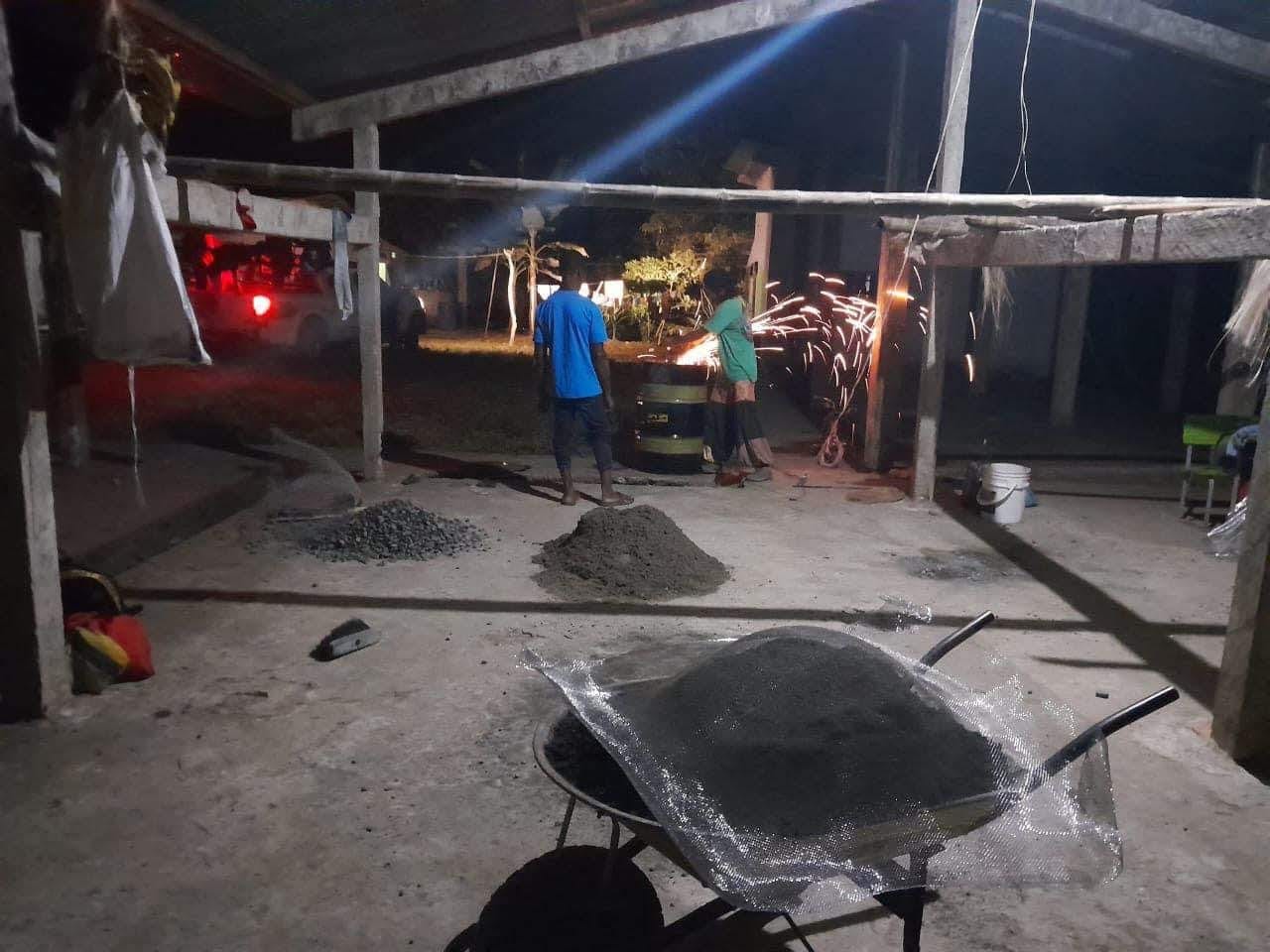
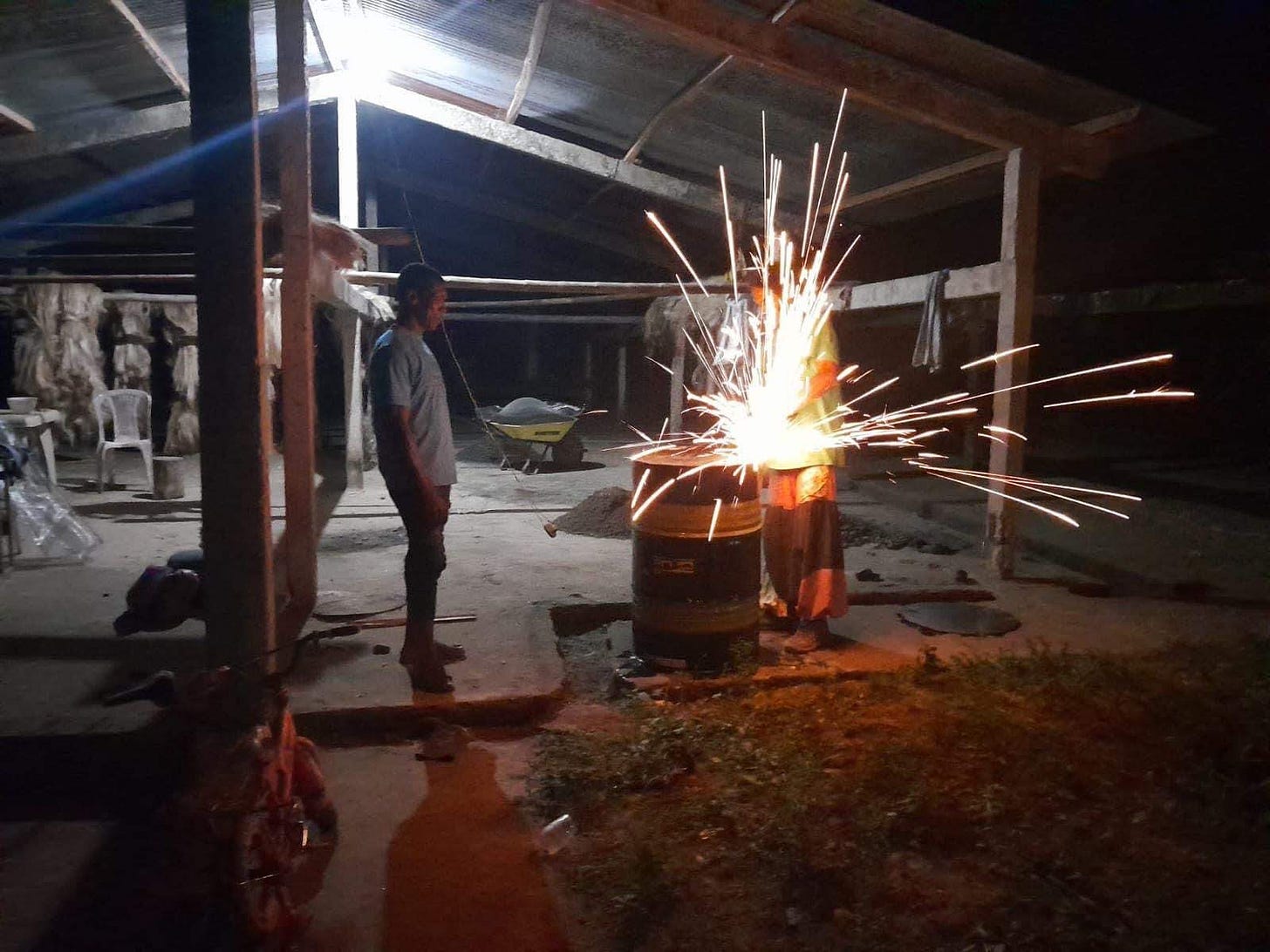
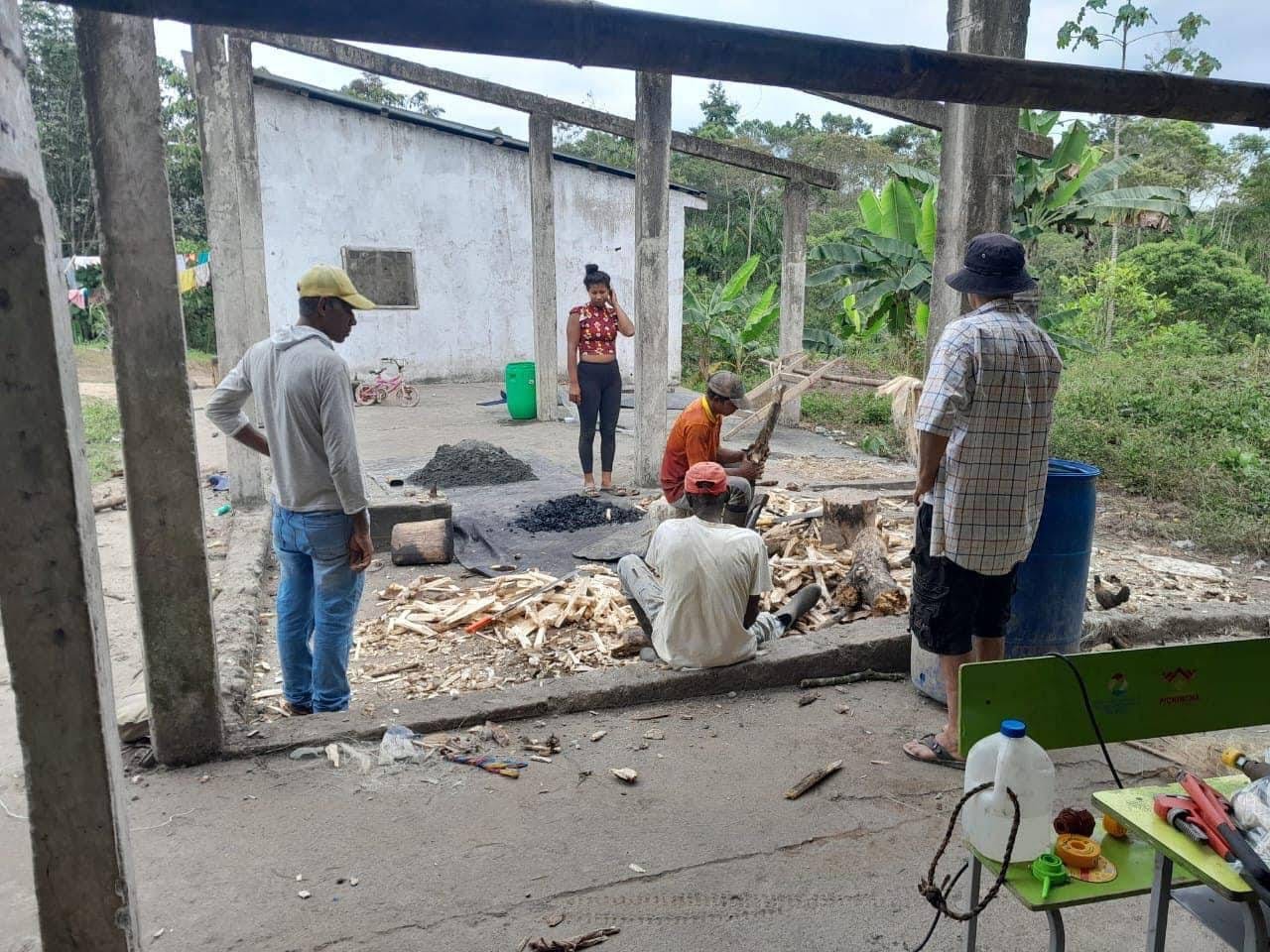
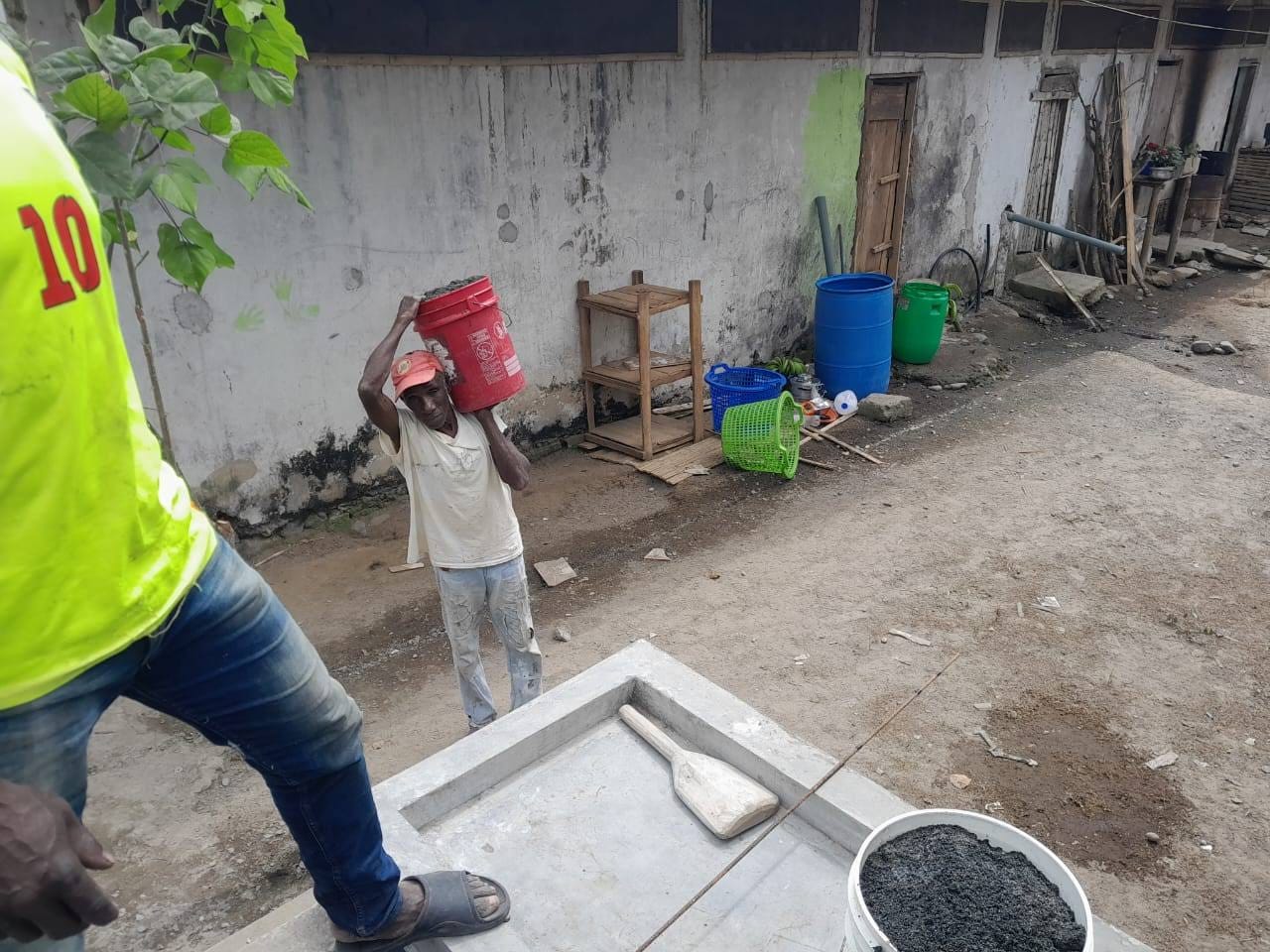
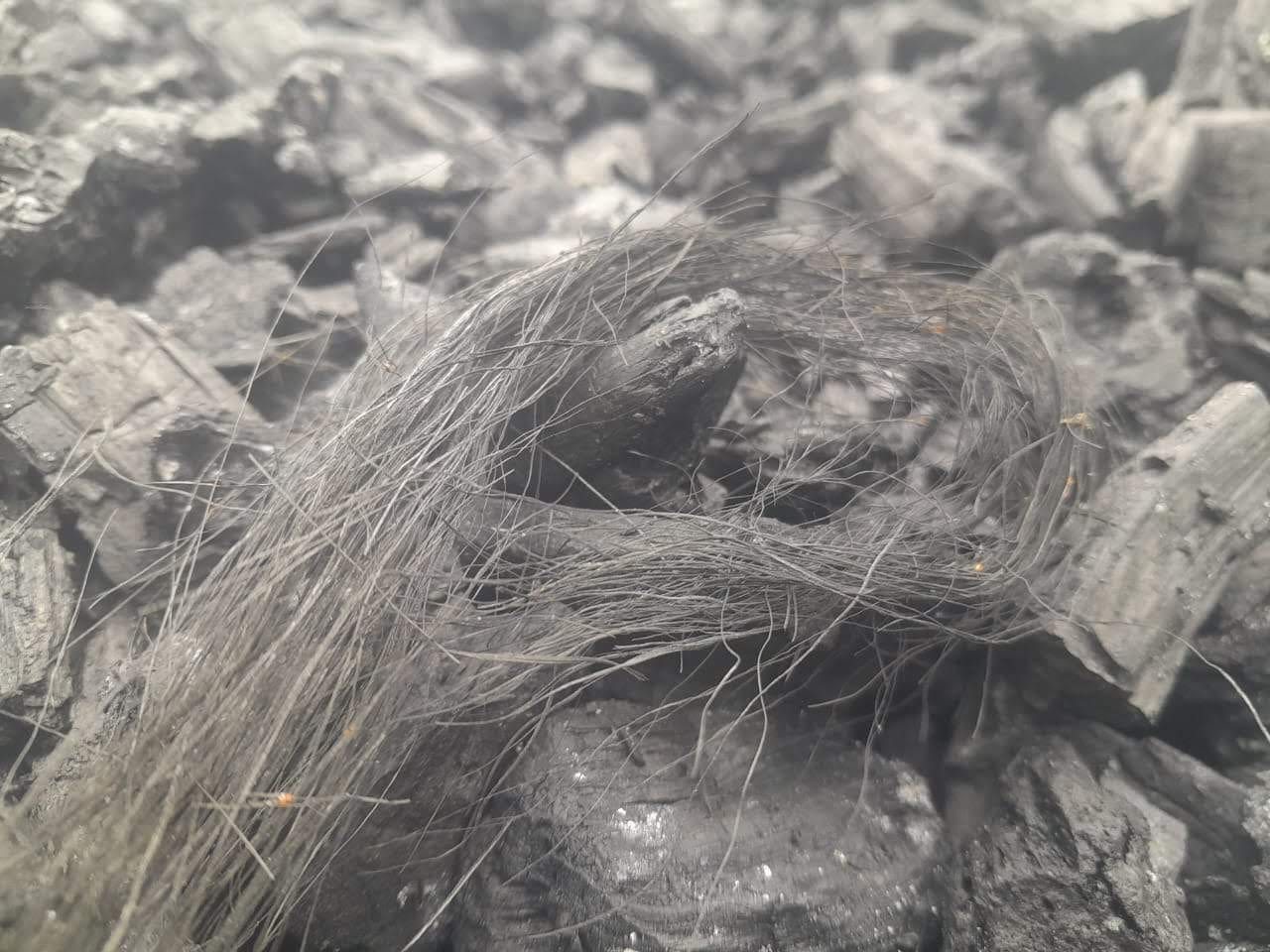
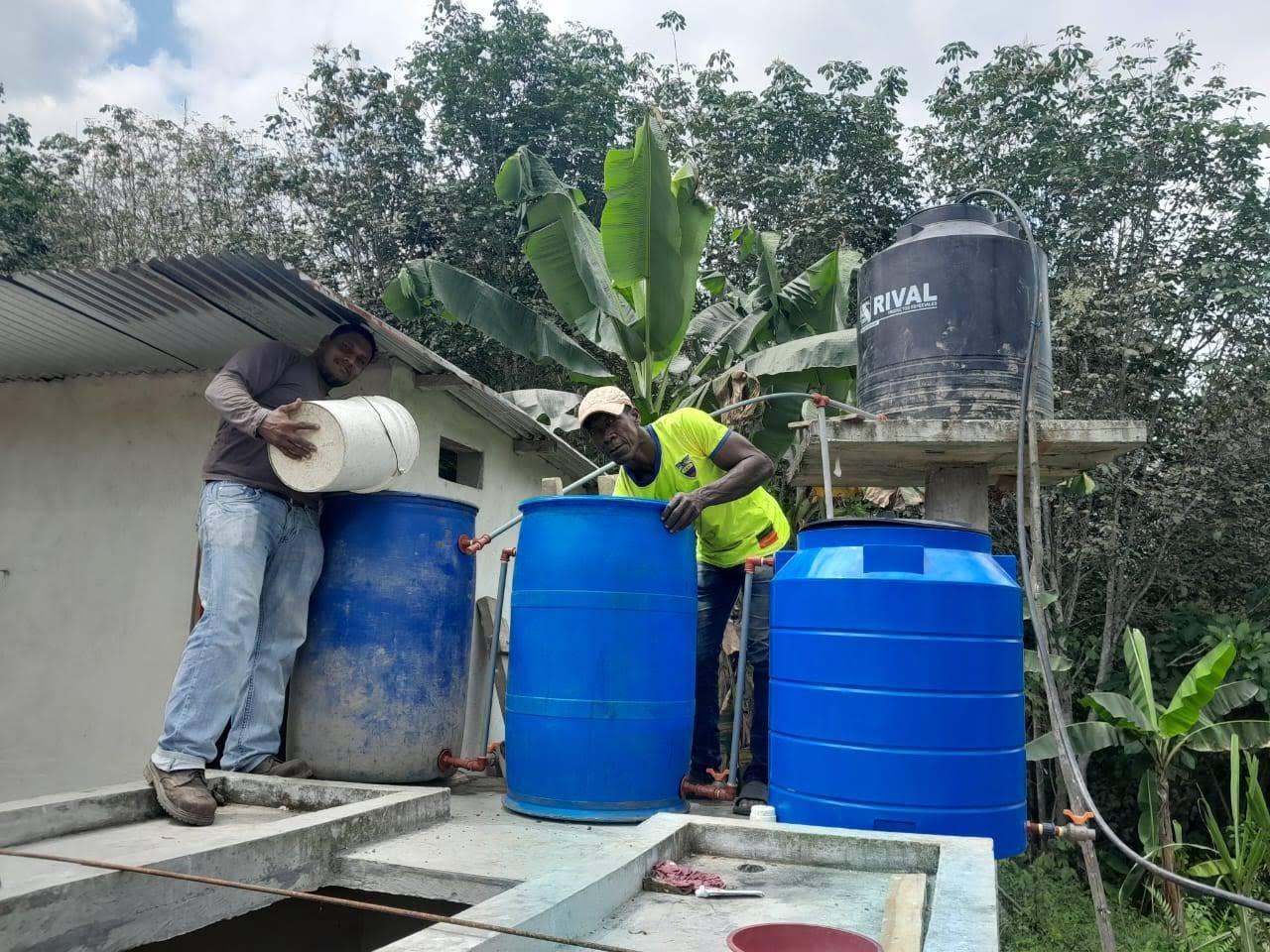
This is so fucked up. Thank you for continuing to help and highlight the plight of people suffering under these ridiculous conditions